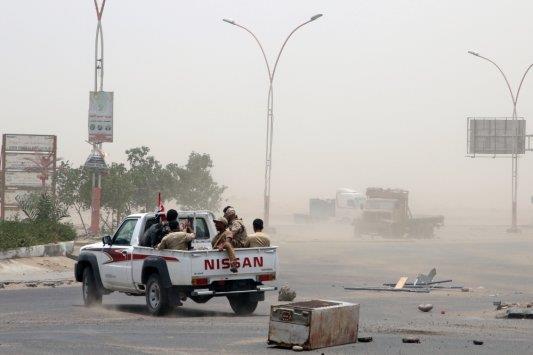
Yemen, pounded by war for five years
(MENAFN- The Peninsula) Sanaa: Impoverished Yemen has been mired in a devastating conflict since Iran-backed rebels seized the capital Sanaa five years ago.
The war escalated in 2015 when a Saudi-led military coalition intervened in support of the embattled government, although Sanaa remains in rebel control.
Here is a broad overview.
Sanaa falls
On July 8, 2014, Huthi fighters from the country's rebel Zaidi Shiite minority launch an offensive from their northern stronghold of Saada.
In September, they enter Sanaa, seizing the government's headquarters. Days later, rebel leader Abdelmalek al-Huthi hails the "victory" of a "popular revolution".
The rebels ally themselves with military units loyal to ex-president Ali Abdullah Saleh, who was forced to quit after a 2011 uprising.
In October, they capture the Red Sea port of Hodeida, a crucial entry point for imports and humanitarian aid.
In January 2015, they seize the presidential palace in Sanaa, after heavy fighting, and surround the residence of President Abedrabbo Mansour Hadi.
He flees south to the port city of Aden.
Riyadh enters the war
A coalition led by regional Sunni-ruled Saudi Arabia, a bitter rival of Shiite Iran, enters the conflict in March 2015 with air strikes on rebels.
Around a dozen countries form part of the coalition, including five from the Gulf but not Oman. Washington says it contributes logistics and intelligence.
As the rebels advance southwards on Aden, Hadi quits the city and takes refuge in Riyadh.
In July, his embattled administration announces its forces have retaken the entire province of Aden, their first success since the military coalition intervened.
The city of Aden becomes the country's de facto capital.
By August, pro-government forces have retaken five southern provinces. In October, they reclaim the Bab al-Mandab Strait, an internationally vital shipping route.
Splits emerge in the rebel camp in 2017 and Saleh is assassinated in December by his former Huthi allies.
Battle for aid port
In June 2018, government fighters, backed by Saudi and Emirati land forces, launch an offensive to retake the crucial port city of Hodeida.
UN-brokered peace talks between the warring parties open in Sweden in December.
After around a week, UN chief Antonio Guterres announces a series of breakthroughs, including a ceasefire in Hodeida where combat largely ceases.
In May 2019, the UN announces the rebels have withdrawn from Hodeida and two other nearby ports, the first practical step on the ground since the ceasefire deal.
But the government accuses the militia of faking the pullout, saying it had merely handed control to its allies.
Southern separatists
The anti-Huthi camp is also divided, notably in the south between separatists and pro-government forces.
Southern Yemen was an independent state before its unification with the north in 1990, and separatists have remained powerful.
Over three days at the end of January 2018 heavy fighting takes place in Aden between government forces and southern separatists previously allied with the presidential camp.
The clashes leave 38 people dead and the separatists seize government buildings and surround the presidential palace until Saudi and Emirati forces intervene.
On August 7, 2019, new clashes break out in Aden between southern separatists known as the Security Belt who are supported by the Emiratis, and pro-government forces.
On August 10 the separatists gain ground across Aden, surrounding the presidential palace.
Worst humanitarian crisis
The Yemen conflict has killed tens of thousands of people, the vast majority of them civilians, relief agencies say.
It has triggered what the UN describes as the world's worst humanitarian crisis.
"An estimated 80 percent of the population -- 24 million -- require some form of humanitarian or protection assistance, including 14.3 million who are in acute need," says the UN Office for the Coordination of Humanitarian Affairs said.
A cholera outbreak killed more than 2,500 people in 2017.
The UN children's agency UNICEF described the conflict as "a living hell" for children, with 1.8 million under-fives suffering severe malnutrition.

Legal Disclaimer:
MENAFN provides the
information “as is” without warranty of any kind. We do not accept
any responsibility or liability for the accuracy, content, images,
videos, licenses, completeness, legality, or reliability of the information
contained in this article. If you have any complaints or copyright
issues related to this article, kindly contact the provider above.


















Comments
No comment